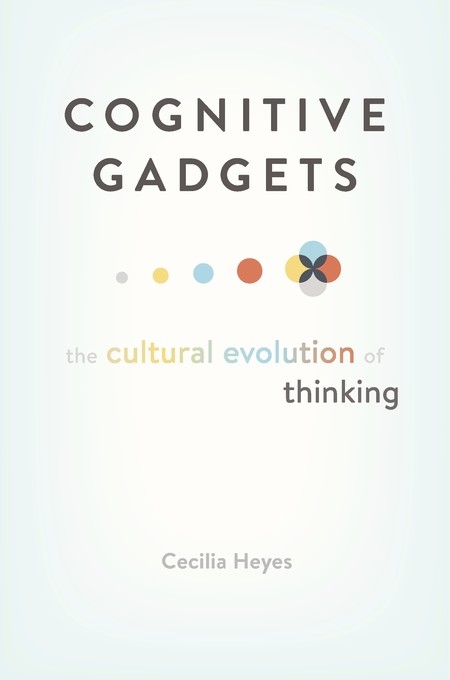
Let’s review the bidding here as we enter the bell lap in. our January Jolts with more than 2/3 of of the thirty-one pledged posts now up.
The posts so far have included:
- An avowal that everyone has a personal history of testing, which means we all have experienced tests.
- Some wondering why our takes on these common elements of our existence vary so widely from a long tail of support to a plateau of apathy to the twin peaks of test hatred and measurement abhorrence.
- Insistence that claims are what tests are about and claims are not going away even if we get rid of tests
- Investigation into whether anyone pays much attention to the construction of tests by teachers; e.g., their assessment literacy if you will
- A multidimensional exploration of validity, which is the most important aspect of testing
- Long looks at conscientiousness and hope that despite having rather significant correlations to various kinds of success supported by research and being elements of our self that we can improve curiously do not find their way more often into the usual battery of tests to which students are subjected
- Urging to read Freddie deBoer, Marxist and advocate (in a way) of testing
- Questioning as to why we don’t consider the ways in which cognitive biases would make judgments about us less valid and reliable than those produced by standardized testing
- Answers to the question whether the SATs measure success!
- A warning that Behavioral Genetics might pose a danger IF misinterpreted to schemes to improve learning for everyone
I stated near the beginning of the posts on this blog that one of the purposes is to exercise this demonic possession of concerns about testing from my being. Seems to be working. Hopes that I might avoid my attention fixing on every article, website, TV show that concerns educational measurement bounce joyfully in my breast. Throughout this exercise, I have endeavored NOT to allow these posts to be another instance of the plague of complaints and demands that characterizes so much discourse especially in social media
Everything is complaints and demands in our world. Like Scylla and Charybdis, all who seek to voyage to a better world of actual solutions instead of drowning in cant and swallowed by querulation (including me) need like cunning Odysseus to lash ourselves to ‘the mast’ of true inquiry to pass those two monsters.
Complaints and demands, which is also likely to be the name given to this era of human doings as well as the name of my new proto-punk band.
My favorite proto-punk band is The Kinks BTW

Back to work now
… and stop lazing on a sunny afternoon because sometimes it takes me all day and all of the night to write one of these blog posts. That’s why today I’m using some material I previously composed about Cecilia Heyes…
One of the things I like about Paige Harden is that she sincerely writes sentences like this one: “There is a middle ground between ‘let’s never talk about genes and pretend cognitive ability doesn’t exist’ and ‘let’s just ask some questions that pander to a virulent on-line community populated by racists with swastikas in their Twitter bios.’ ” And recently as noted in The New Yorker… “she expressed support for standardized testing—which she argues predicts student success above and beyond G.P.A. and can help increase low-income and minority representation.”
And I think that middle ground is well cultivated by Cecilia Heyes. Nature and nurture are intertwined in her view and the views of others such as the notion that a parent’s genes can influence a child’s educational success, inherited or not. One of her interests is discovering “Which features of the human mind, now genetically inherited, were once the products of learning… (how) some aspects of human cognition have sunk in – that they were initially learned and are now genetically inherited”
My acquaintance with Cecilia Heyes was to her book cognitive gadgets. I wondered at the time whether it was possible to describe a book about how the minds of human beings became so different from the minds of other animals as straightforward and depthful? To me, it seemed clear that Cecilia Heyes, Senior Research Fellow in Theoretical Life Sciences and Professor of Psychology at All Souls College, University of Oxford, has achieved that feat. From the very first pages of this confident and fascinating text, she makes clear not only her Cognitive Gadgets Theory but also the context in which that theory exists. And the writing is lucid and engaging:
“No other animals have so completely transformed their environment, become so dependent on cooperation for survival, and constructed, along the way, the vast edifices of knowledge and skill in which all human lives are embedded: technology, agriculture, science, religion, law, politics, trade, history, art, literature, music, and sports. Why? What is it about the human mind that enables us to live such unusual lives, and why do our minds work that way?”
For Heyes, the answer is cognitive gadgets and the tone is practical rather than abstract: the implications of her theory suggest different ways in which we might think more profitably about learning. What are these gadgets?
“Mechanisms of thought, embodied in our nervous systems, that enable our minds to go further, faster, and in different directions than the minds of any other animals.” The author then provides us a roster of gadgets: “causal understanding, episodic memory, imitation, mind reading, normative thinking, and many more.” These gadgets — in her theory — arise from social interaction that changes the way we think. In other words, they are a product of learning but as she details them they are also the pathways to some of our most fundamental learning. For the author, “distinctively human cognitive mechanisms, like gadgets, come from human rather than genetic action, and they are small tools that make a big difference. Most human behaviour is controlled by mechanisms we have in common with other animals, but cognitive gadgets are what make our lives so different from theirs.”
Let’s pause for a moment because that’s a significant statement: distinctively human cognitive mechanisms come from human rather than genetic action, and they are small tools that make a big difference. If we can do something to enhance the power of those tools, might that to advances in how we develop as humans especially in our learning practices and effects?
The cultural aspect of Heyes’ relatively short book (304 pages) for such a complex topic is important because the theory that the author espouses holds that “distinctly human cognitive mechanisms — ways of thinking — have been built by cultural evolution.“ She insists that they “are cognitive gadgets rather than cognitive instincts; pieces of mental technology that are not merely tuned but assembled in the course of childhood through social interaction.” Cultural evolution argues that individuals acquire their mental representations by observing the behavior of others. The theory “suggests that humans do not genetically inherit mechanisms that are specialized for the representation of mental states”, but rather culture interacts with ‘genetic starter kits’ to create such capabilities.
And there you get a sense of the difference this theory might make and how we think about ourselves. I don’t have time to get into it today, but please do take a look at the work of Carol Dweck on the difference between a fixed and growth mindsets. One of my fears regarding the increasing influence of behavioral genetics is the way in which it might persuade individuals to adopt the ideas of a fixed mindset not just for themselves but for others especially those who have less resources at the beginning of their life. The difference between seeing ourselves as fixed entities mostly hardwired by genes and viewing ourselves as a collection of malleable elements that depend upon and are molded and remolded through social life. Models of development shift depending upon which of these theories informs a worldview and more critically the design, application, and evaluation of interventions as well the expectations of institutions.
Heyes’ theory and the school of cultural evolution inspire great argument given the recent dominance of genetic explanations for the shaping of our central attributes. Heyes’ book offered a new and persuasive twist on that old debate for me. (Anyone who has recently seen the riveting and disturbing documentary Three Identical Strangers will be familiar again with the nature versus nurture argument.) While she outlines her difference with other schools, Heyes refuses to adopt an ‘either/or’ stance and instead looks intriguingly at the ways in which genetic and cultural inheritances intertwine. As she writes, “It is far from easy to parse cognitive development” because “every aspect of human behavior and cognition depends upon a rich stew of factors.” She is simultaneously judicious and probing in her consideration of how much our abilities are fed by the culture part of the ‘stew’.
Heyes does contrast significantly with such influential researchers and theorists as Robert Plomin and Noam Chomsky. The former who has in the past advised the Minister of Education in the United Kingdom argues that the ability to learn is influenced more by genes than experience. Chomsky has advanced for decades the model of language as an innate faculty, a consequence of how we are born with a set of rules about language already imprinted in our brains — a ‘Universal Grammar’. Heyes asserts instead that what we inherit genetically needs to be put together, switched on, and amplified in some manner to reach its full potential but her stance advocates where possible syntheses of theories rather than antitheses. For example, she writes:
“The Cognitive Gadget, ASL model of imitation in no way suggests that imitation depends exclusively on associative learning. Rather, it suggests that certain kinds of socio-cultural experience — for example, synchronous action, being imitated, and interacting with mirrors —are of overriding importance in the development of imitation.”
Tomorrow I’ll continue with Cecelia and the differences between cultural and genetic selection, but for now I think I’ve given you enough to chew on and two Kinks songs to listen to if you click on those links above
The idea of ‘gadgets’ is a useful one that I recognise from my own learning experiences. Here I am thinking about acting like a magpie and picking up jewels along the way – a failsafe filing methodology, a particular way of writing the letter A or the number 7, always remembering to ask why – from teachers, yes, but also from peers, associates, colleagues, reading… I also wonder about ‘reverse genetics’, by which I mean what our children teach us and how they test us. That’s all a bit philosophical, but I am reminded of the work of Borg, Clark and Peterson, and Richardson (amongst many others of course) about teacher cognition and the need to pay attention to teachers’ thoughts, teachers’ actions, and the interactions between the two, and their theoretical and practical subject knowledge acting in combination, focusing on beliefs, attitudes, and conceptions, learning to assess, undertaking reflective practice, taking into account their previous life history (including their own schooling), their experience of teacher education, and their professional practice in the classroom… These are the ‘gadgets’ coming together as ‘cognition’, I think…
Borg, S. 2008. Teacher cognition and language education: research and practice. London: Continuum.
Clark, C. M. and Peterson, P. L. 1986. Teachers’ thought processes. In: Wittrock, M.C. ed. Handbook of Research on Teaching. 3rd ed. New York: Macmillan, pp.255-96.
Richardson, V. (1996). The role of attitudes and beliefs in learning to teach. In: Sikula, J., Buttery, T.J., and Guyton, E. eds. Handbook of Research on Teacher Education. 2nd ed. New York: Macmillan, pp.102—119.
Richardson, V., Anders, P., Tidwell D. and Lloyd, C. 1991. The Relationship between Teachers’ Beliefs and Practices in Reading Comprehension Instruction. American Educational Research Journal, 28(3), pp.559-586. Available from: https://www.jstor.org/stable/1163149